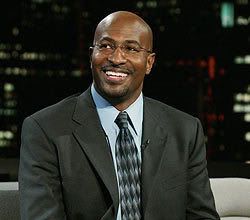Author's posts
Mar 26 2009
Regulation with a capital R
According to the Washington Post today, the Obama administration is proposing sweeping new regulations for the financial services industry.
Treasury Secretary Timothy F. Geithner is proposing a sweeping expansion of federal authority over the financial system, breaking from an era in which the government stood back from financial markets and allowed participants to decide how much risk to take in the pursuit of profit.
The Obama administration’s plan would extend federal regulation for the first time to all firms trading in financial derivatives and to companies including large hedge funds and major insurers such as American International Group. The administration also will seek to impose uniform standards on all large financial firms, including banks, an unprecedented step that would place significant limits on the scope and risk of their activities.
Mar 22 2009
Under Siege
This past week I read a powerful little book…The Cellist of Sarajevo by Steven Galloway. It is a fictionalized account of 4 people’s lives during the Siege of Sarajevo, which went on from 1992 to 1996. For a short piece of the history, here’s an introduction by wikipedia.
It was fought during the Bosnian War between poorly equipped defending forces of the Bosnian government, who had declared independence from Yugoslavia, and the Yugoslav People’s Army (JNA) and Bosnian Serb forces (Army of Republika Srpska) (VRS) located in the hills around Sarajevo, who sought to destroy the newly-independent state of Bosnia and Herzegovina and create the Serbian state of Republika Srpska (RS).
It is estimated that of the more than 12,000 people who were killed and 50,000 who were wounded during the siege, 85% were civilians. Because of killing and forced migration, by 1995 the population decreased to 334,663 – 64% of the prewar population.
As Galloway tells us in the afterword of the book, it is based on a true story of something that happened during the siege.
At four o’clock in the afternoon of May 17, 1992, during the Siege of Sarajevo, several mortar shells struck a group of people waiting to buy bread behind the market on Vase Miskina. Twenty-two people were killed and at least seventy were wounded. For the next twenty-two days Vedran Smailovic, a renonwned local cellist, played Albinoni’s Adagio in G Minor at the site in honor of the dead. His actions inspired this novel.
Mar 12 2009
Change has come to the White House?
Mar 10 2009
Environmental Justice
I expect that soon we will be hearing more about ideas like “environmental justice” and “eco-equity.” That’s because today, the Obama administration announced that Van Jones has been appointed as the Special Advisor for Green Jobs, Enterprise and Innovation. If you haven’t heard of Van Jones before, I’m sure you’ll be hearing about him in the future.
My introduction to Jones came a few years ago when I learned of his work as founder and director of the Ella Baker Center in Oakland, CA. There he fought for justice for juvenile offenders with campaigns like Books Not Bars.
Books Not Bars fights to redirect California’s resources away from youth incarceration and towards youth opportunities. We engage in grassroots campaigns using media advocacy, policy advocacy, grassroots organizing, and alliance building.
Currently, we are working to close California’s abusive, expensive youth prisons and replace them with rehabilitation centers and community-based programs.
You may be wondering what a man with that background knows about green jobs. Follow me below and you’ll see how his life mission progressed.
Mar 08 2009
Invisible Thinking
I’ve always been terrible at science – something I blame on my 10th grade biology teacher (that’s a whole long boring story). But recently I’ve been pretty intrigued by what we’re learning about how the brain works. It could be that I have just enough knowledge to be dangerous because I pretty much stick to layman’s interpretations of this information rather than digging in to the actual science. But I’m more interested in the overview anyway.
The whole distinction between how our left and right brains work is the part that has most fascinated me. From the amazing speech that Dr. Jill Bolte Taylor (video link) gave at a TED conference as well as other sources, I’ve learned that the right brain is responsible for taking in all of the stimuli that we gather from our senses. And the left brain is responsible for sorting and naming so that we can make sense of it all.
The tricky part is that our senses and our right brains take in way more stimuli than we can sort. So the left brain has to develop some short-cuts to help us with that. One of the ways it does this is by sorting things into patterns that it has seen before. These short-cuts are what I’m calling “invisible thinking.” Our brains place incoming stimuli into previously developed patterns so that we don’t have to spend so much time analyzing and sorting through the myriads of data that we take in. Of course, the problem with this is that when we want to change our invisible thinking, that can be difficult to do unless we examine the patterns we’ve incorporated.
Mar 03 2009
A Return to Diplomacy
From the New York Times yesterday.
President Obama sent a secret letter to Russia’s president last month suggesting that he would back off deploying a new missile defense system in Eastern Europe if Moscow would help stop Iran from developing long-range weapons, American officials said Monday.
The letter to President Dmitri A. Medvedev was hand-delivered in Moscow by top administration officials three weeks ago. It said the United States would not need to proceed with the interceptor system, which has been vehemently opposed by Russia since it was proposed by the Bush administration, if Iran halted any efforts to build nuclear warheads and ballistic missiles…
Mr. Obama’s letter, sent in response to one he received from Mr. Medvedev shortly after Mr. Obama’s inauguration, is part of an effort to “press the reset button” on Russian-American relations, as Vice President Joseph R. Biden Jr. put it last month. Among other things, the letter discussed talks to extend a strategic arms treaty expiring this year and cooperation in opening supply routes to Afghanistan…
Mr. Medvedev said Sunday that he believed the Obama administration would be open to cooperation on missile defense.
“We have already received such signals from our American colleagues,” he said in an interview posted on the Kremlin Web site. “I expect that these signals will turn into concrete proposals. I hope to discuss this issue of great importance for Europe during my first meeting with President Barack Obama.”
Mar 01 2009
Restorative Justice
Last week I wrote about the failings of our current justice system as I see them. Today I’d like to offer an alternative for the phase of criminal justice that deals with how consequences are decided and implemented and then take a brief look at deterrence (or crime prevention).
Our current system is typically referred to as a “retributive justice” system. As such, crime is defined as a breaking of the rules/law. The state (or government) steps in and, through an adversarial process, determines guilt and establishes punishment.
It might surprise you to know that most all Native and even some Western European cultures (prior to about 1,000 AD) practiced what we now refer to as “restorative justice.” In restorative systems, the crime is primarily seen as something that harms people and disrupts the fabric of relationships and community. A cooperative process is used to bring the offender face-to-face with those they have harmed (victim and/or community) to determine how best the harm can be repaired (which might or might not include our current forms of punishment – like jail).
Mar 01 2009
Re-defining the divide
You may have noticed that President Obama submitted his first budget this week. David Sanger with the NYT certainly did.
There is a boldness to the strategy – the kind of boldness that worked for Mr. Obama during the presidential campaign – that is breathtaking. He is gambling that the combination of his political capital and the urgency created by the economic crisis gives him a moment that may never come around again…
If Johnson’s rallying cry was an end to poverty in the world’s richest nation, Mr. Obama’s is an end to the Reagan Revolution. With the proposed tax increases on couples making more than $250,000, Mr. Obama has declared that trickle-down economics – the theory that the entire country benefits as the nation’s richest amass and spend – was a fantasy. He denounced it in moral terms, declaring in his budget that “there is something wrong when we allow the playing field to be tilted so far in the favor of so few.”
Some are even calling it the Shock Doctrine Reversed.
Feb 24 2009
Obama to Cantor: Grow Up
For those of you who have watched “Prime Ministers Questions” on cspan and wished we had a similar format here in the US, yesterday that wish sort-of came true. President Obama held a “Fiscal Responsibility Summit” at the White House and invited congressional leaders, union representatives, industry leaders and others to talk about the difficult task of our country’s fiscal challenges. After they had met in small groups on topic areas, Obama made some remarks (transcript) and then opened the floor for questions/comments. It was an interesting back-and-forth.
But I was particularly interested in this (just the first 35 seconds of the video):
Feb 24 2009
Be the change
If you knew that you would be alone,
Knowing right, being wrong,
Would you change?
Would you change?If you knew that you would find a truth
That brings up pain that can’t be soothed
Would you change?
Would you change?Are you so upright you can’t be bent?
If it comes to blows are you so sure you won’t be crawling?
If not for the good, why risk falling?
Why risk falling?If everything you think you know,
Makes your life unbearable,
Would you change?
Would you change?How bad, how good does it need to get?
How many losses? How much regret?
What chain reaction would cause an effect?
Makes you turn around,
Makes you try to explain,
Makes you forgive and forget,
Makes you change?
Makes you change?Tracy Chapman, Change
Feb 22 2009
Sexism in the MSM
As I’ve said before, I’m not much of one for rants. And I’m pretty sure I won’t do this one justice. But here comes one.
This morning, I’m reacting to two events in the MSM that reek of sexism. As we continue to work on a more equal playing field, these kinds of things are a blow and perpetuate the way that women and their capacities are undervalued and caricatured.
The first comes from US News and World Report in the form of a poll…who would run the best day care center.
Feb 22 2009
On Justice
I’ve heard it said that approximately the same number of people control 95 percent of the world’s economy as are in solitary confinement in the United States. There can be little doubt as to which group has killed the greatest number of people. The same would hold true for which group has stolen the most, especially if we include resources, and which group has most damaged the planet. It is entirely possible that we have the wrong population in solitary. But, of course, so long as those in power decide who goes to prison, those in power will not go to prison.
-Derek Jensen, The Culture of Make Believe
I think that most of us learn from an early age to view the world as it is presented to us and part of that means an implicit agreement about when to be outraged and when to be fearful. We’ve created whole belief systems and myths about this that we assume are designed to both punish criminals and protect ourselves. And yet, as Jensen points out in his book and buhdy noted a couple of days ago, the system is rigged from the get-go.




